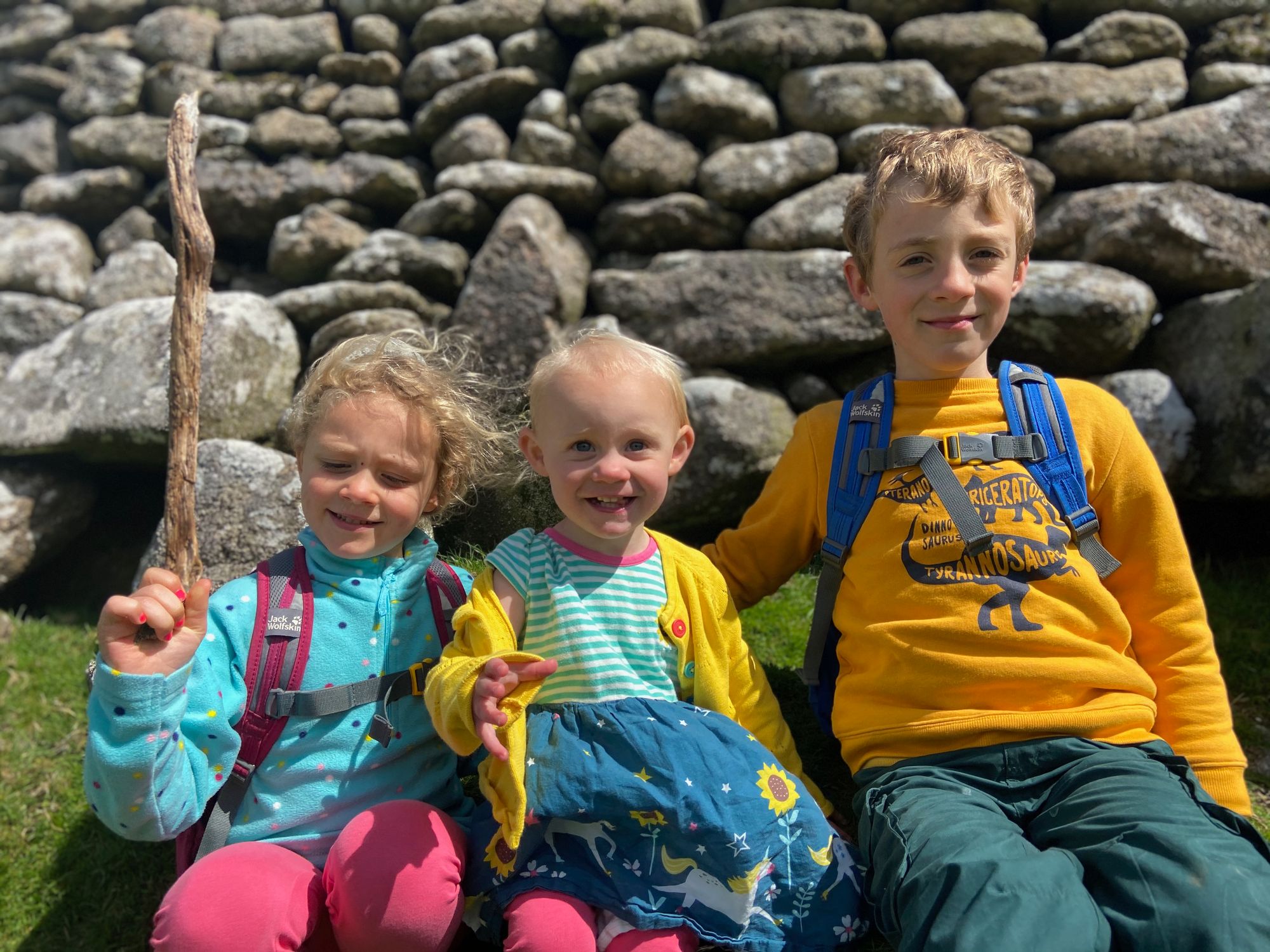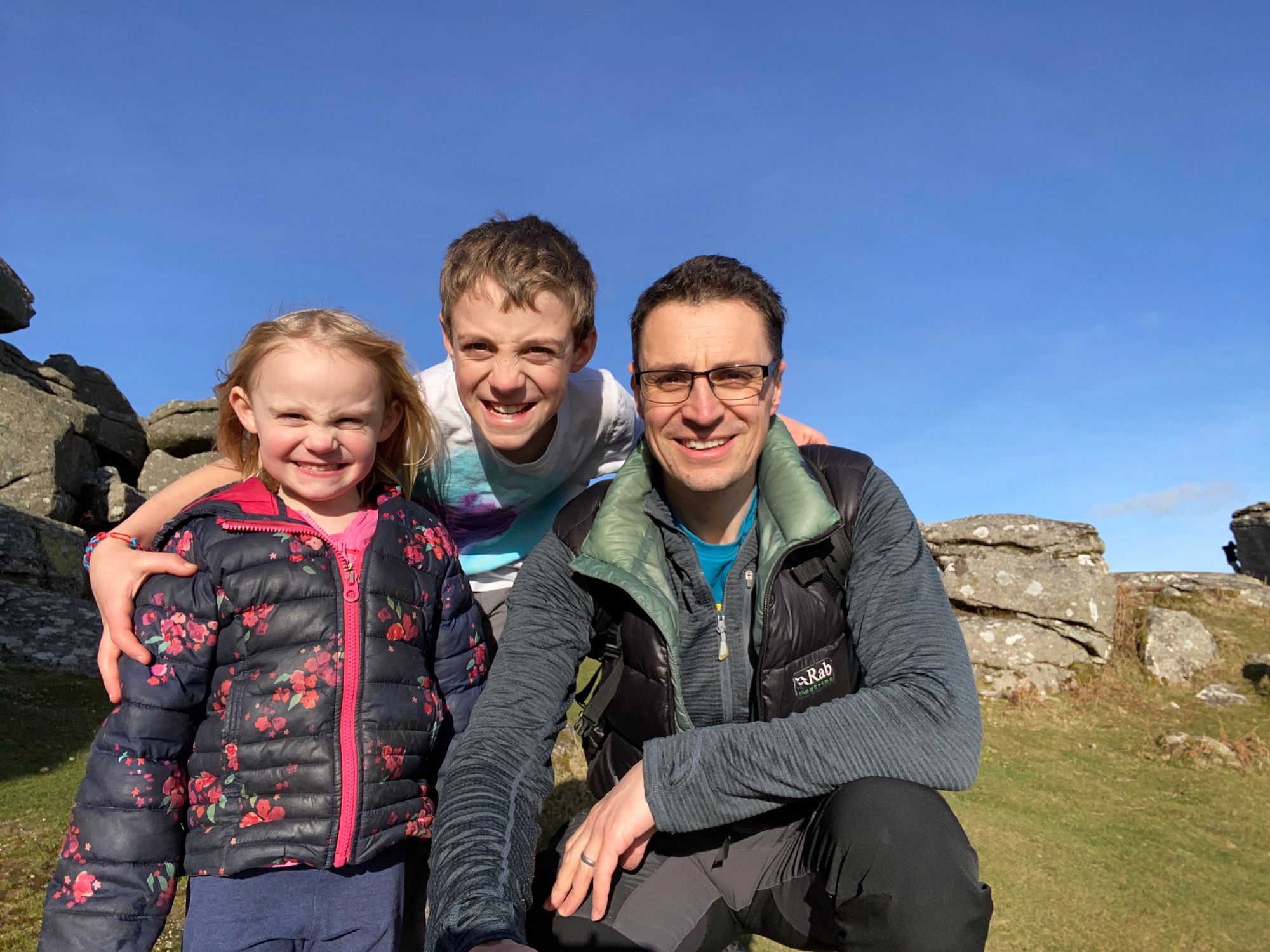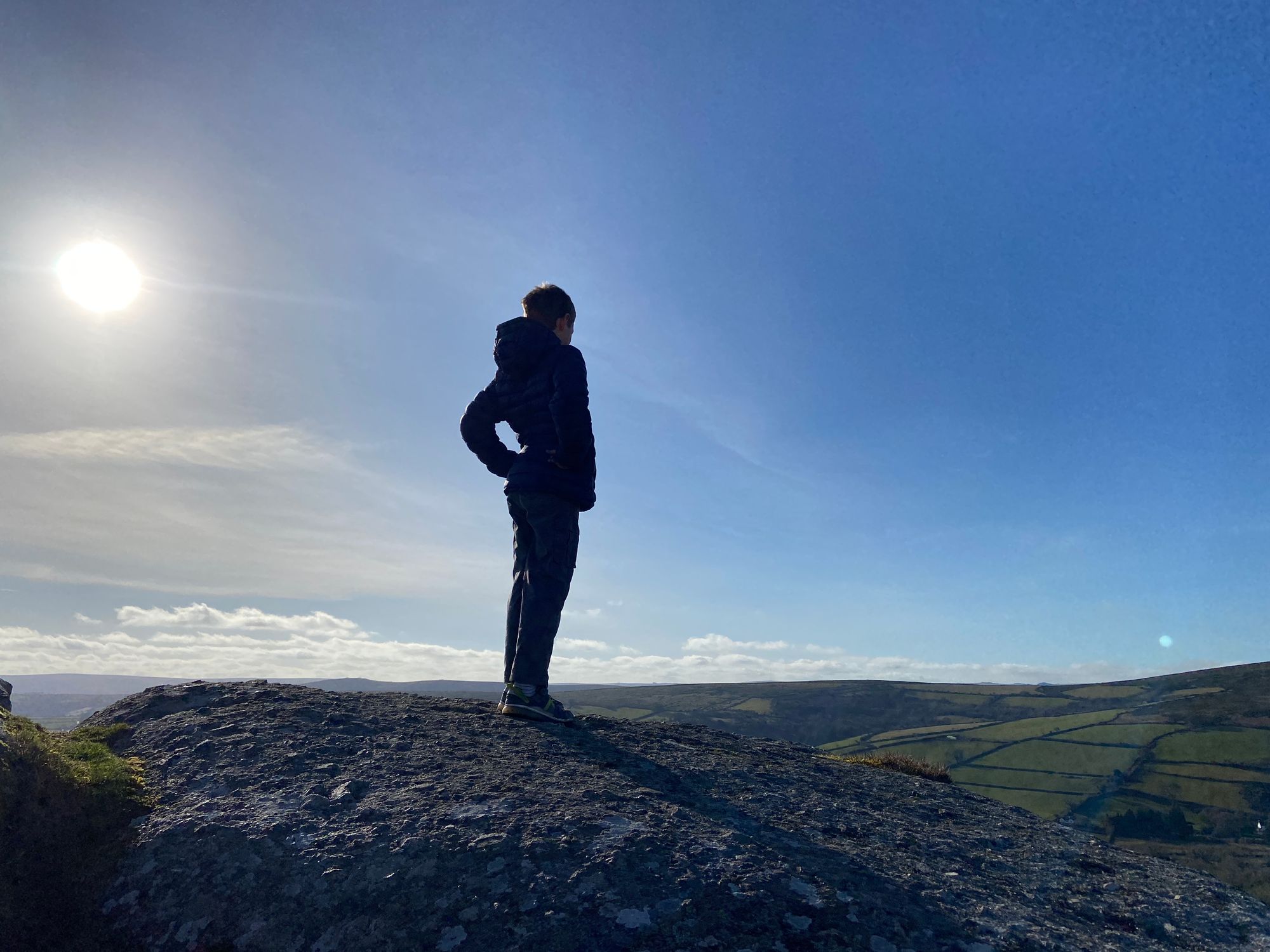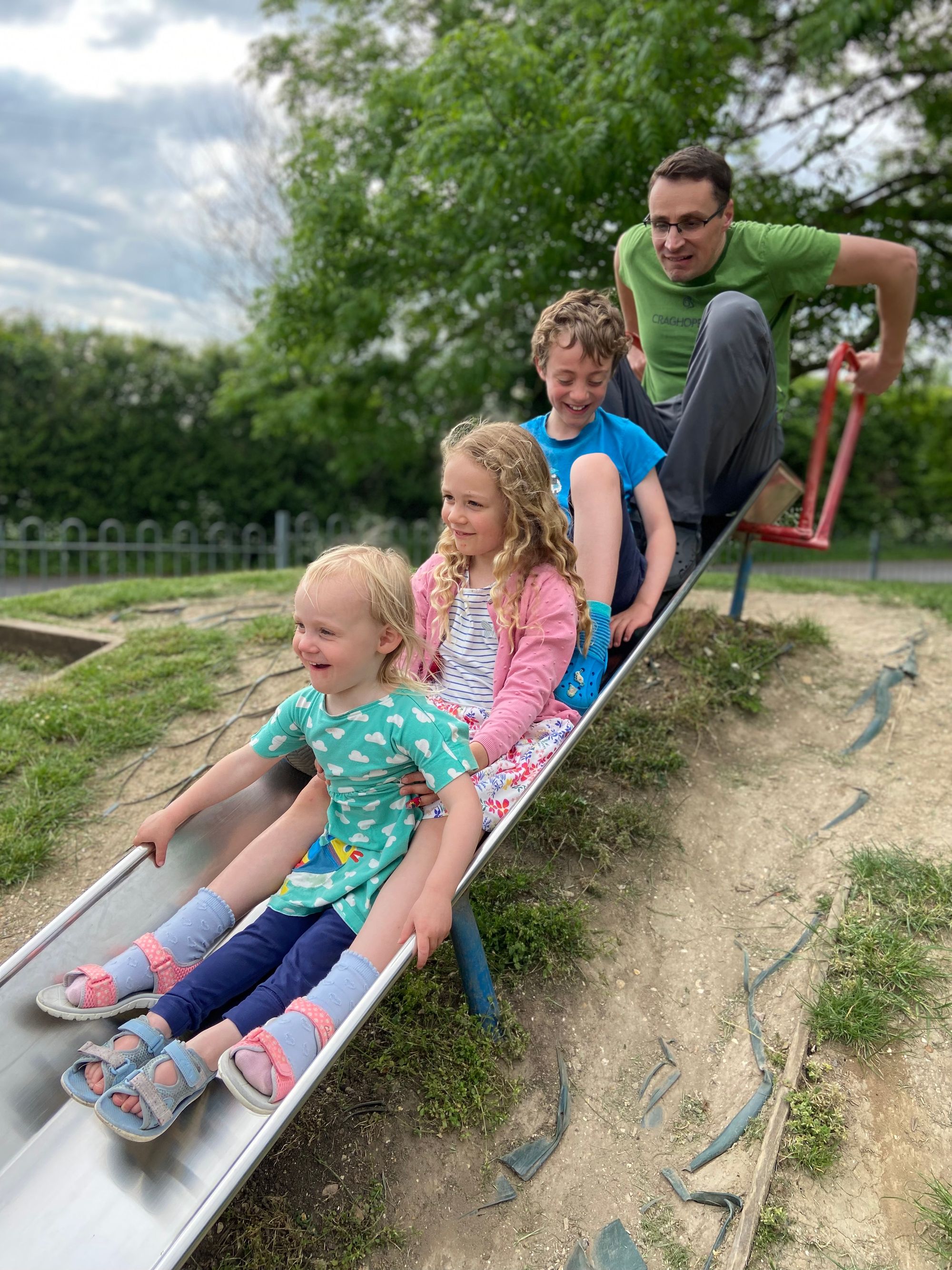Saturday Blueprint on Parenting
A parenting reflection on the nature of children and the importance of being present and patient. Children live in the moment and are naturally resilient and resourceful. We can learn from that.

“If you live according to nature, you wil never be poor; if you live according to opinion, you will never be rich.”
As a parent I can look at my children in wonder at how resilient, happy, resourceful, and energetic they are. They haven’t learned to do anything other than act in accordance with nature. They are always in the present. As in the quote above they are ‘rich’ in simply not having the capacity to do anything other than live in the moment. They don’t fret about the future, they don’t get anxious about their ego, they don’t pine about the past, and they don’t stress about their situation. They do a great job just being. Let’s explore the nature of children and the unique responsibility of parenting, for which I am wholly unprepared but endlessly fascinated.

⏳ Time
How to outfox the fox
Let me tell you a story. This happened a couple of months ago…
It was a tough day today. A tired child and an unkind act led to a clash of personalities. What started as a lack of sharing led to digging an entrenched position, espousing values and principles and other highfalutin concepts that an angry child can’t understand. Like war, things escalated quickly. The deep irony is that, as an adult, the response is anger, and getting angry is the opposite of kind. With distance and reflection, shouting at the top of your voice “Think about what you’ve done - you’re so unkind!” is almost laughable. Who’s the child again?! When something gets your back up it’s incredibly difficult to back down, and it’s even harder to maintain a temperament of kindness. I guess we all have that inner child. We all have buttons that can be pressed that take us in an inexplicable instant to our own personal trench warfare.
Now, children being kind to each other does matter, of course. So how then as a parent do you deal with unkindness? How do you not act like I acted and storm off at the cycle trail with the words “Right, back to the car, we’re going home RIGHT NOW!” echoing in your wake? Dust kicked up like some Western showdown of lawlessness. Well, firstly it’s to recognise that you can’t beat kindness into someone. Be a mirror for kindness instead. This is still indescribably difficult in the moment and so of little practical help. Instead, I’ll continue my story, because there is a better way.
After stomping back to the car dragging one bike by the handlebars with three kids at various stages of tears. They pleaded with me to go back out to the bike path. Begged. With the voice of my Dad, and perhaps everyone’s Dad, I uttered, in total, blinding sincerity, the immortal words “This is your LAST CHANCE!”.
And I gave them that chance. And you know what, it got better. But it didn’t get better because of all the back-and-forth and raised voices and ultimatums. It got better for one and only one reason. A reason that in fact makes anything and everything better.
Time. Just time.
It’s simple. It’s obvious. But just time and a pinch of patience are all it needed. I could have gone straight to that and bypassed all the hullabaloo. And whilst kids may be pretty reckless loose cannons, they are also beautifully incapable of holding a grudge. They let go of anger as quickly as they are engulfed by it in the first instance. They forgive and they forget, fully, freely, and quickly. I can learn from that for sure.
The key is to just out-patience them. Let them vent. The storm will pass and the sun will come out again.
How to live in the present
The fact that children can’t hold a grudge and in general are untroubled by past and future is self evident to me. As I explore later, a key reason for this is that most self-directed activities that kids do are forms of play. When they are engrossed in some playful activity they are almost deaf and blind to everything else. It’s no surprise that focused play is a flow state - it’s a perfect combination of challenge, creativity, stimulation, curiosity, and fun. This leads me to the first principle or directive on being present then: If you want to be present, play.
The outside world is endlessly fascinating for children. Go for a walk with them and a humble stick becomes a wand or a sword. A pebble is a magic crystal. A leaf is a raft for a family of tiny adventurers. Nature is utterly enthralling for children. They can find wonder everywhere they look. The fractal shapes of nature offer an infinitude of perspectives; as the scale changes the level of detail and definition doesn’t, and so our senses are pulled ever onward. I’d posit that adults and children alike could spend hours looking at an oak tree and marvelling at the existence of such complex and captivating beauty. Where children excel though is in things we adults dismiss as not worthy of attention. The ant hill, or the rock shaped just so for the imagination of a child. Children have an immediate connection between what they are seeing and their extensive imagination. There is no rationality getting in the way. In this way then nature is an instant portal to the present. The second principle or directive in being present is: If you want to be present, be in nature.
Take a leaf from a child and don’t hold on to regrets, or worries, just be. You were once a child - what was that like? Did you play in the mud, or ride your bike in the rain? You can try to find what you once lost.
You might also like to read an essay I wrote previously titled ‘On children and life’: https://www.nickjstevens.com/an-essay-on-children-and-life/
🪐 Space
How to reflect
We all need space to think and reflect. Parenting affords me the opportunity for reflection but with the constraint that I can’t abdicate my parenting duties. I can’t run away from my problems, I can only confront them. Children are the same - they need space too, just like they need time as we explored above.
You wouldn’t want to cut your kids out of your life. That’s too permanent and too extreme. But you can give them the space they need. Sometimes they are grumpy - give them the space to be grumpy. Sometimes they are sad - give them space. With a bit of space comes a bit of perspective. For you and for them. You may come to realise that they aren’t a ‘problem’ for you to solve. It’s not your failing or their failing, it is just a natural and expected bump in the fabric of space-time. What you can do is reflect positive behaviours for them to see. Dealing with emotions is hard enough for adults, let alone for kids. You can show them by example. What do you do when you get angry? They might see that and wordlessly copy that as their tool for coping with anger. The better you can deal with your own emotions the better your kids will be because they will subconsciously learn from you.
Reflection is a great word because it also means that which is a mirror. We can reflect on the sort of reflection our behaviours are casting. It’s not about what we say but what we are seen to do.
Stress exists where there is tension between two opposing positions. The ‘being pulled in two directions at once’ scenario. There is a dissonance because the two positions have different and unreconcilable goals. To use a personal example, I’m most stressed (and tend to express this by shouting at my kids) when there is dissonance between work and parenting. Those times when I need to get the kids out the door for school so I can be back for a work meeting. Of course, this isn’t the fault of the children. But it is a source of stress because there is tension between family and work - they don’t have the same goal and inner conflict results. Sometimes leading to outer conflict when it all gets a bit much!
I’m not perfect and when I lose my temper with my kids I do reflect on this in my journal. Writing about it helps me experience what happened with some detachment so that I might make a different choice next time. It’s about trying to crowbar some space between an external stimulus or trigger and the instinctive reptile brain response, a small space where I can actually think and be rational and maybe next time have the self-awareness to choose how to respond first, before simply reacting.

How to play
A critical paper on the need for children to play sets out and summarises the importance of play. The paper concludes that:
Children need rich opportunities for play that is self-directed, imaginative, creative, and physical.
This is because their brains are wired differently than adults. Cognitive development research shows that children aren’t just more error-prone than adults - they reason in entirely different ways. This insight shaped the work of one researcher, Jean Piaget, for several decades and underpinned one of the most influential accounts of cognitive development ever to have been conceived.
That kids are ‘wired’ differently might be a fact of science and research but the implication for us adults is that playing is important, especially if you’re looking to learn or grow. A key reason is that play is sustainable - if your exercise routine is playful, perhaps a game with ultimate frisbee, then it’s far easier to indefinitely sustain this than something that is objectively less ‘fun’.
It’s not just physical play though; children bring a sense of wonder to everything. I’m always amused and amazed that my kids find the most boring things completely engrossing and entertaining - a trip to run errands, taking cardboard to the dump (they sing “to the dump, to the dump, to the dump, dump, dump” with the toy recycling truck they’ve got!), going through the car wash, and any other menial situation you can care to think of.
Children have a special affinity for the natural world and are excellent at embracing this sense of wonder. Just think of all the time kids spend playing with bugs, digging in the dirt, or talking about animals. Nurturing this innate enthusiasm is the best way to encourage learning. A study from the American Institutes for Research even found that outdoor classrooms improve kids’ science test scores by 27 percent.
It’s worth taking a moment now and then to just watch your kids. Without judgment, just watch. It’s fascinating. There are plenty of lessons for us in plain sight just waiting if we only can take the time to see them. The way they approach everything, particularly in nature, with curiosity. The way they run around for no reason other than it’s fun to run around and feel the wind in your hair. The way the natural world is an infinite playground for endless imaginations. The way their focus can contract wholly to the present moment.
And have you ever noticed that kids run from place to place by default, unless directed by an adult to “slow down!” Why do they do this? And at what age do they stop and why? My guess is that as young children they are able to tune into human nature more easily, without the societal burdens that depress us adults. It’s also probably because it’s fun. It’s freeing too. And maybe it’s a small degree of freedom in an otherwise constrained childhood. Either way, the next time you see a child running for no reason, maybe lift your mind from the news, the chores to be done, the bill to be paid, and just smile. Smile for the happiness of the young.

How to coach
Micromanagement is a poor strategy in both leadership and parenting. You want to model behaviors rather than enforce behaviors.
Leadership begins with your behaviour. What’s more powerful? A manager or coach or teacher who tells you the right thing to do? Or one who shows you how to live and work by example? People gravitate toward the standard you set, not the standard you request. — James Clear
So coach your children by showing them how to act, how to respond, how to behave.
This is the realm of actions speaking louder than words. As the famous quote goes:
Your actions speak so loudly, I can not hear what you are saying. — Ralph Waldo Emerson
And it’s even more true with kids because they are a sponge for learning actions and behaviour by mimicry. We talked above about reflecting our own behaviour for our children, and as cliché as it sounds the ‘lead by example’ monicker is as good a model as any. And regardless of whether you choose to believe this or not the inescapable truth is that your children will learn by copying you. It’s human nature. And because of the accelerated pace at which children learn it’s more apparent for them, especially when they are young.
It turns out that children help us to see our actions. They don’t care about our words. But our actions, now they will be absorbed. Children then are a philosophical handrail for us then - it’s not about words or thoughts. It’s about actions. In short and in closing:
“Don’t be a think tank, be a do tank!”
If you enjoyed these musings you might also like Saturday Blueprint 13 on Learning from my Children.
It’s a pleasure writing to you. Have a great week. 😊
Nick
About the Saturday Blueprint
The Saturday Blueprint is a weekly newsletter every Saturday on health, vitality, and philosophy by Nick Stevens.
Join the Facebook page to interact with the community.